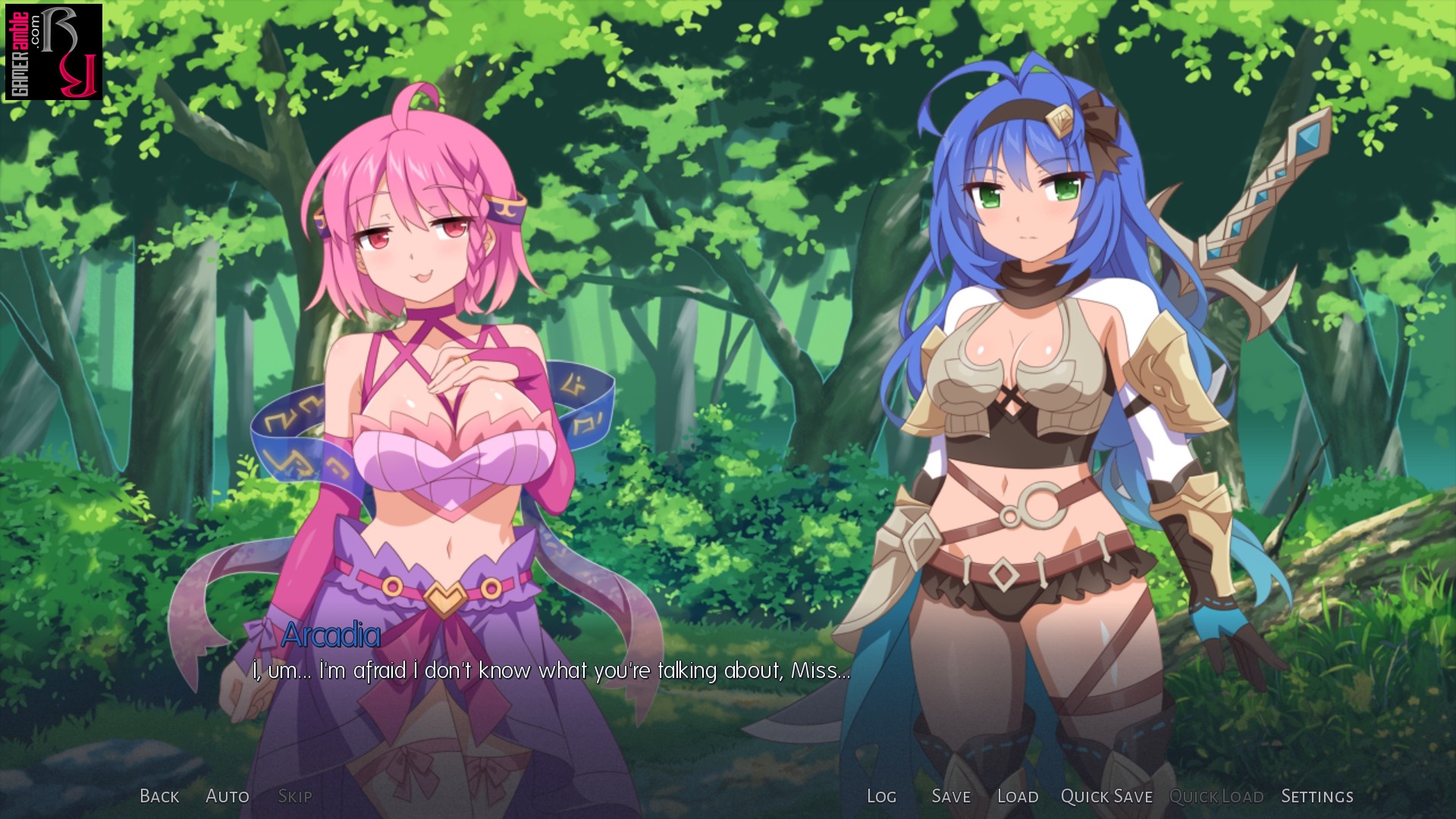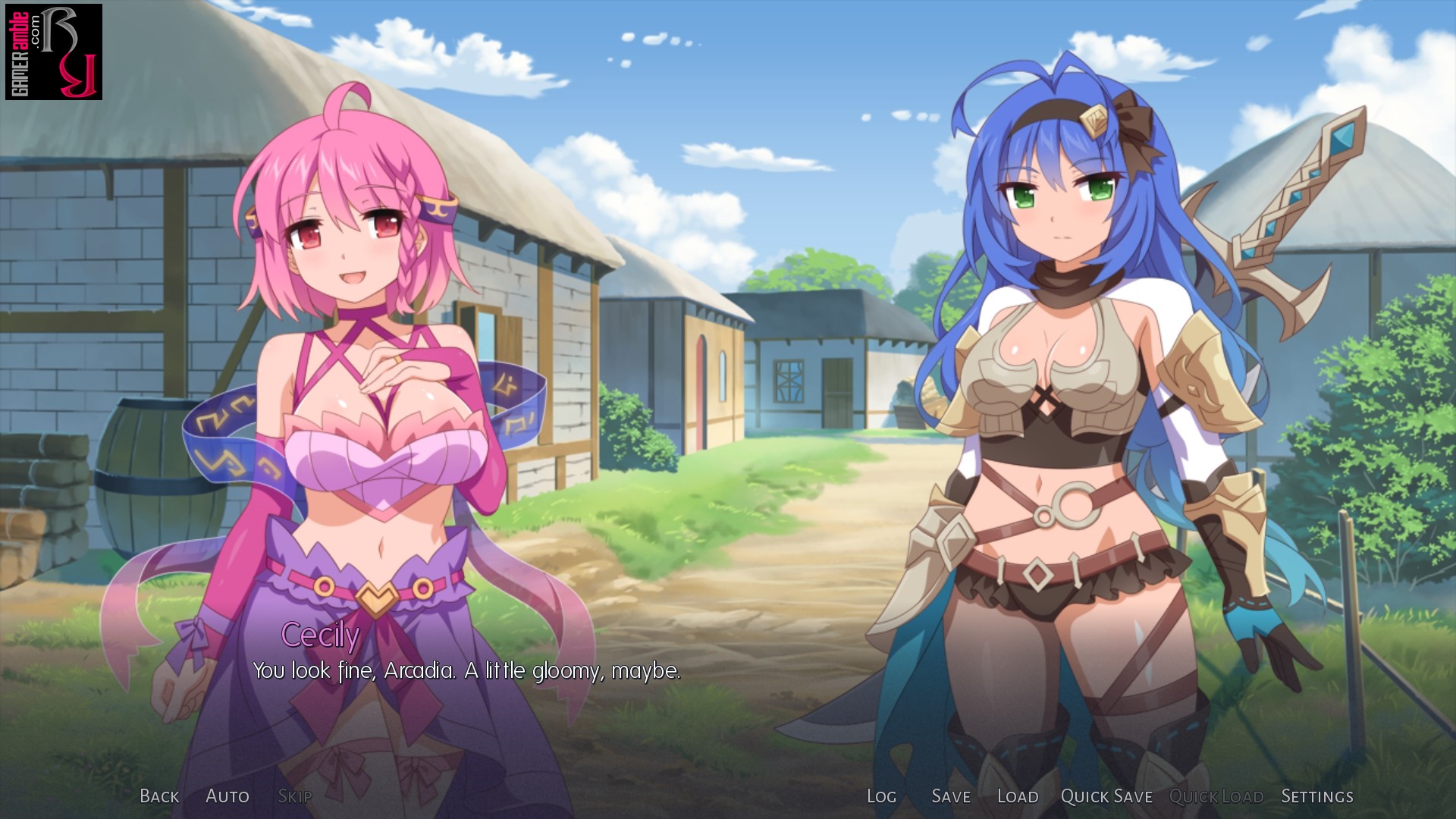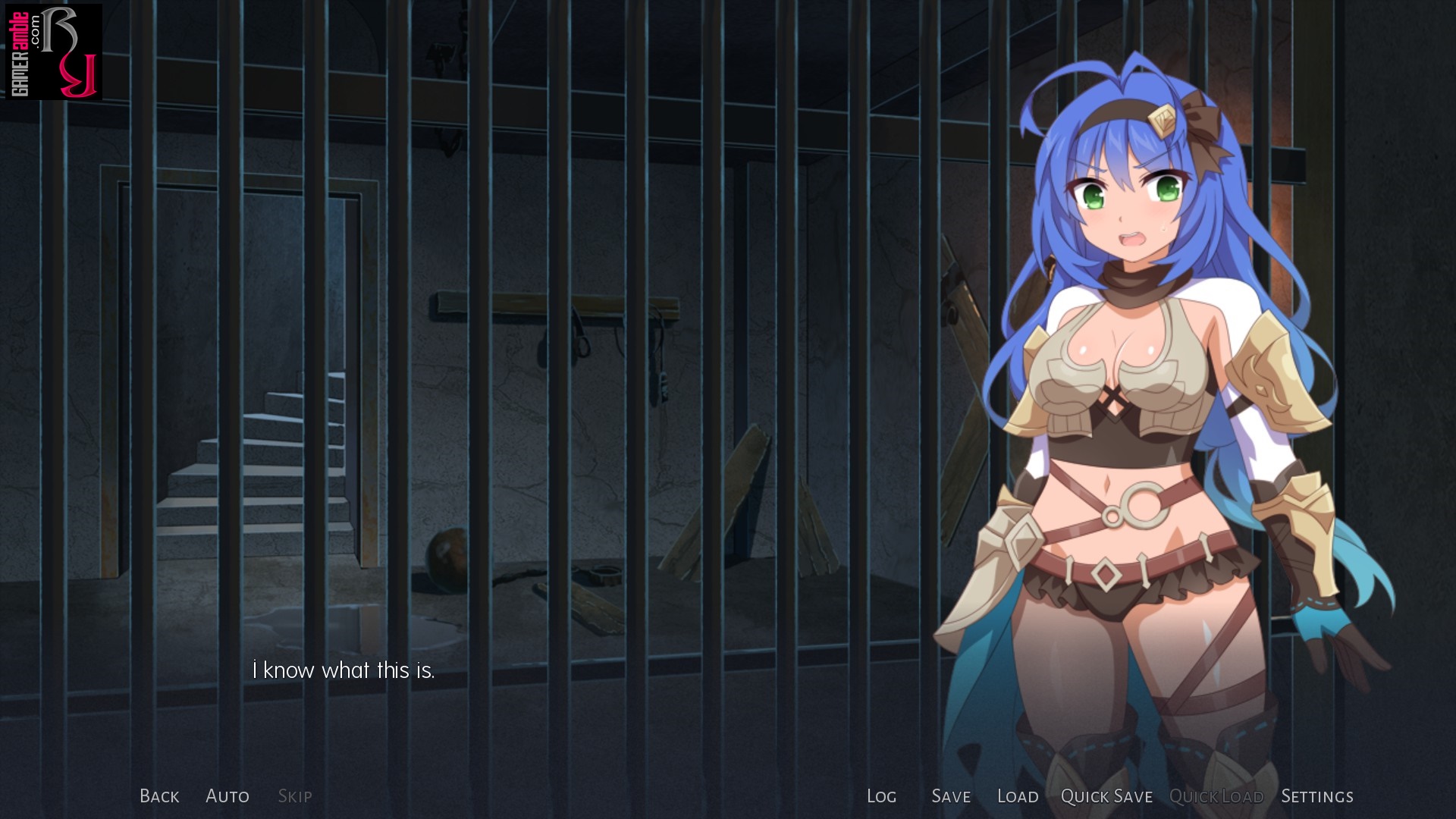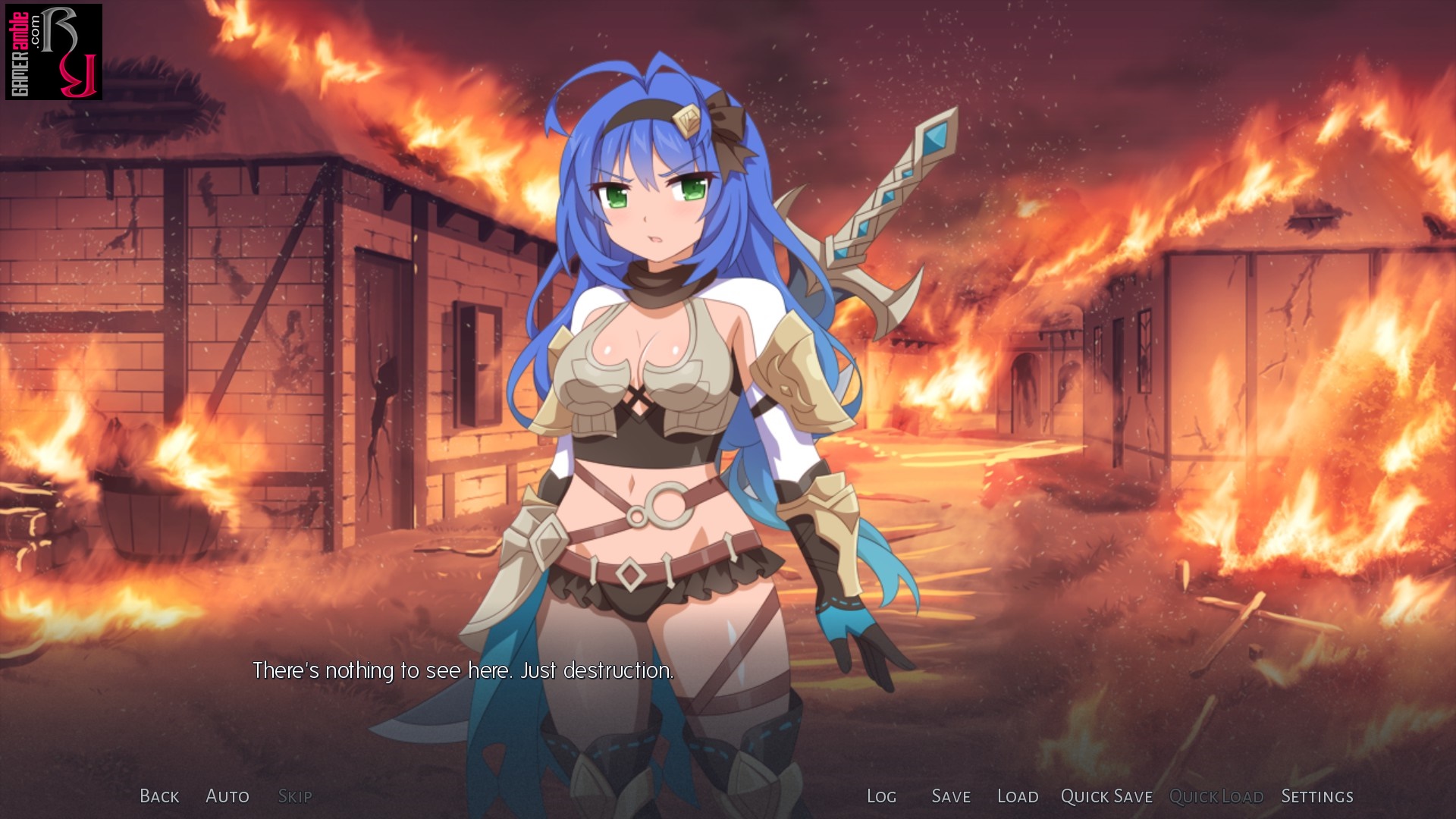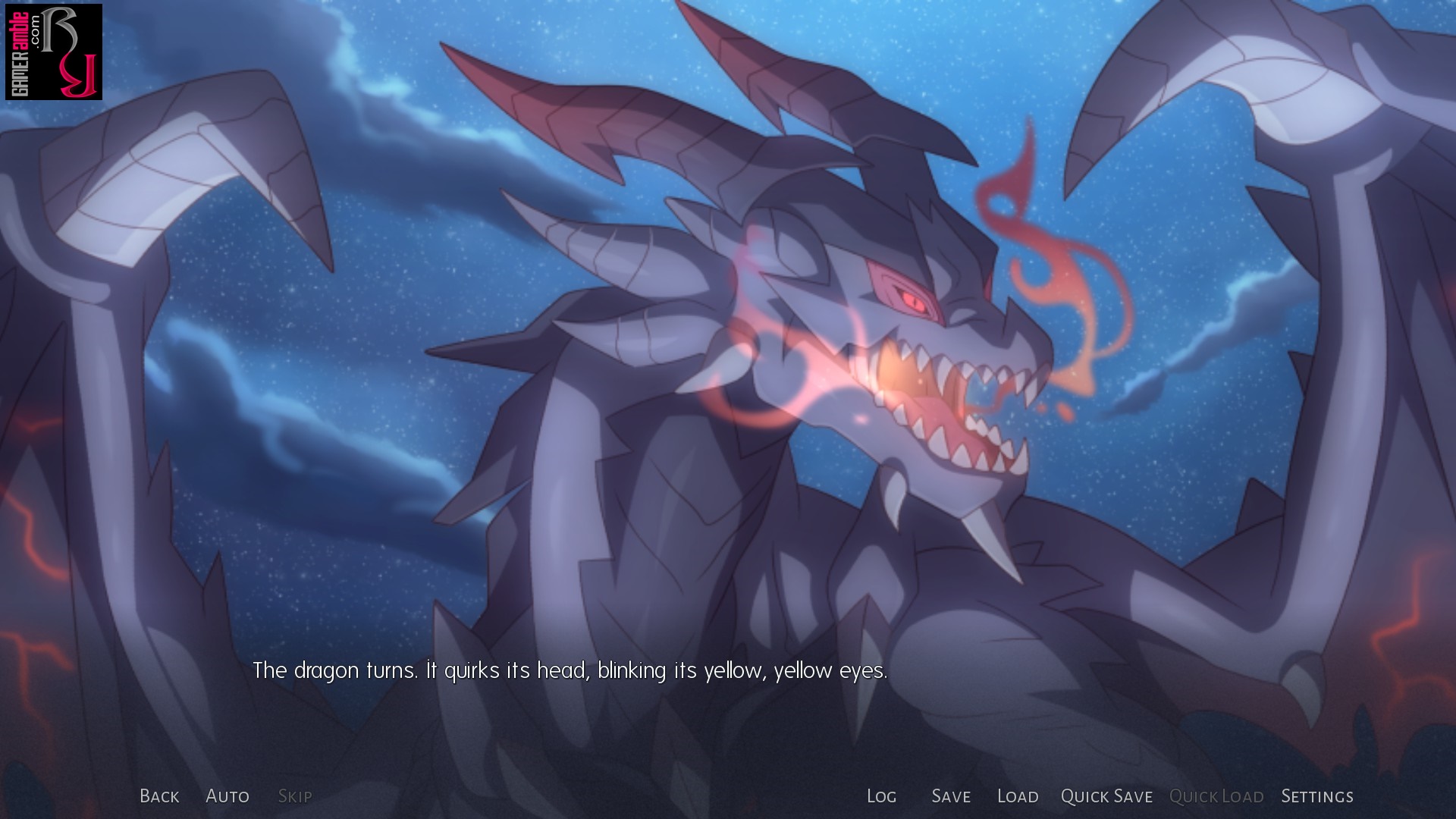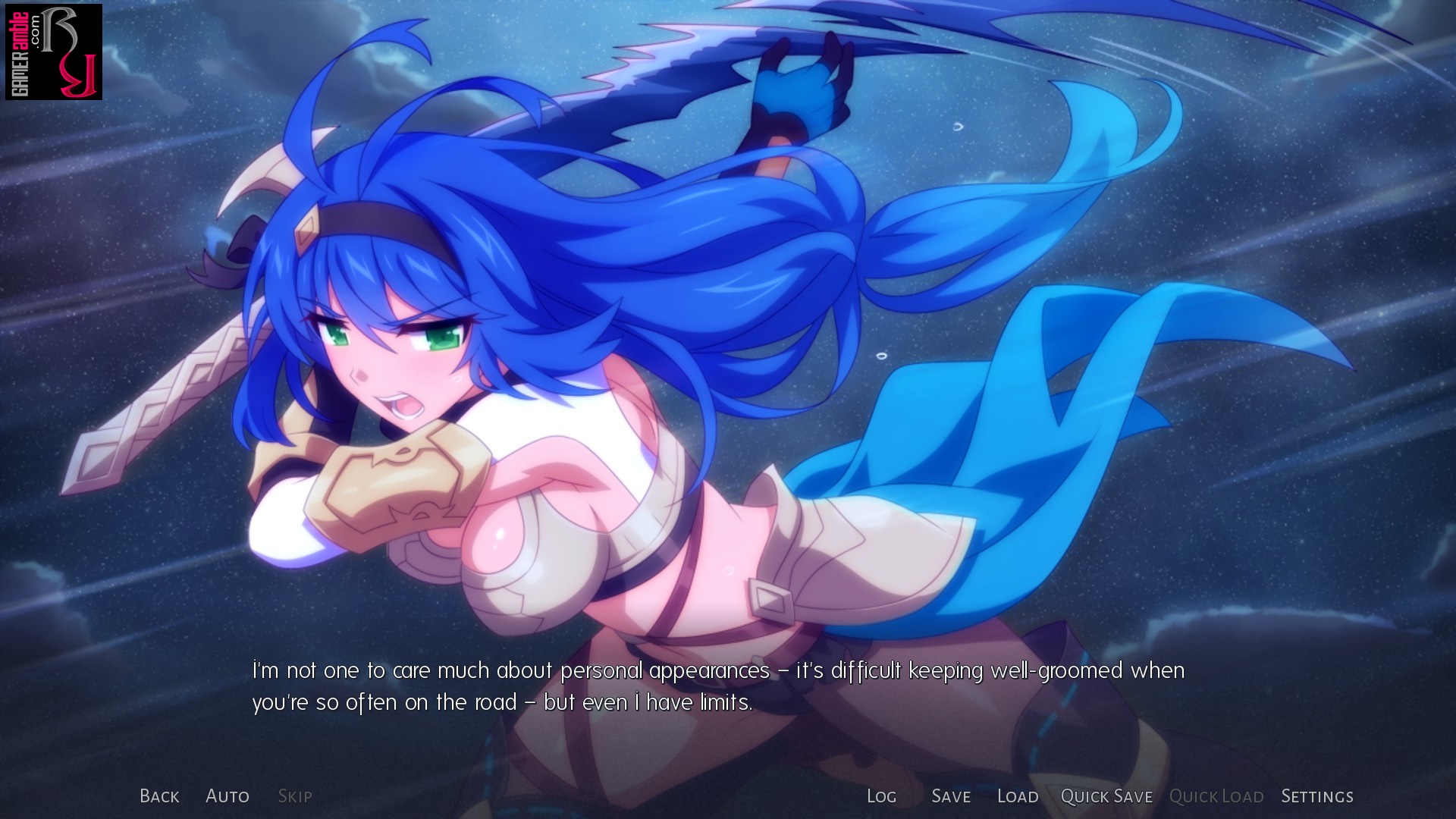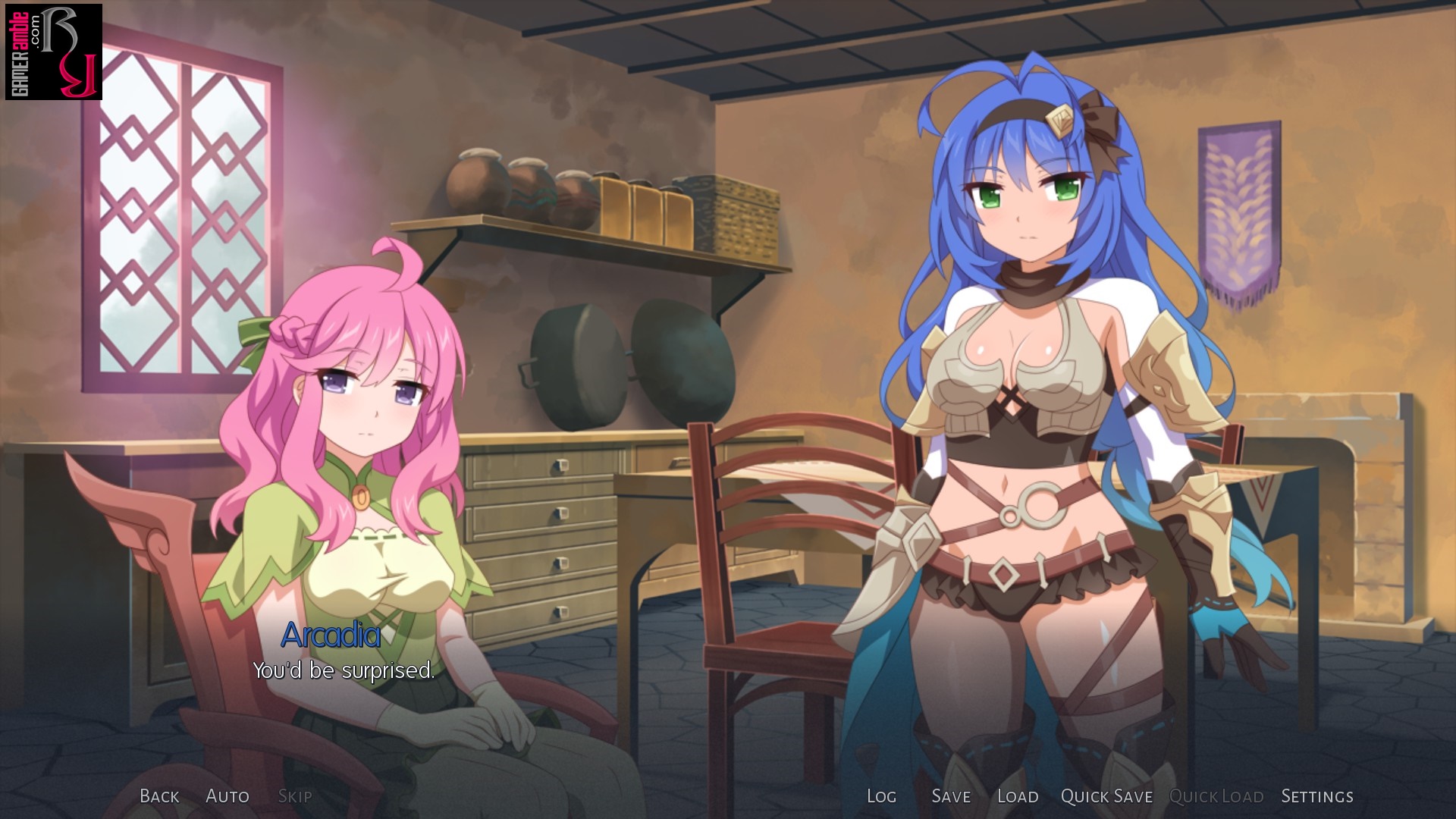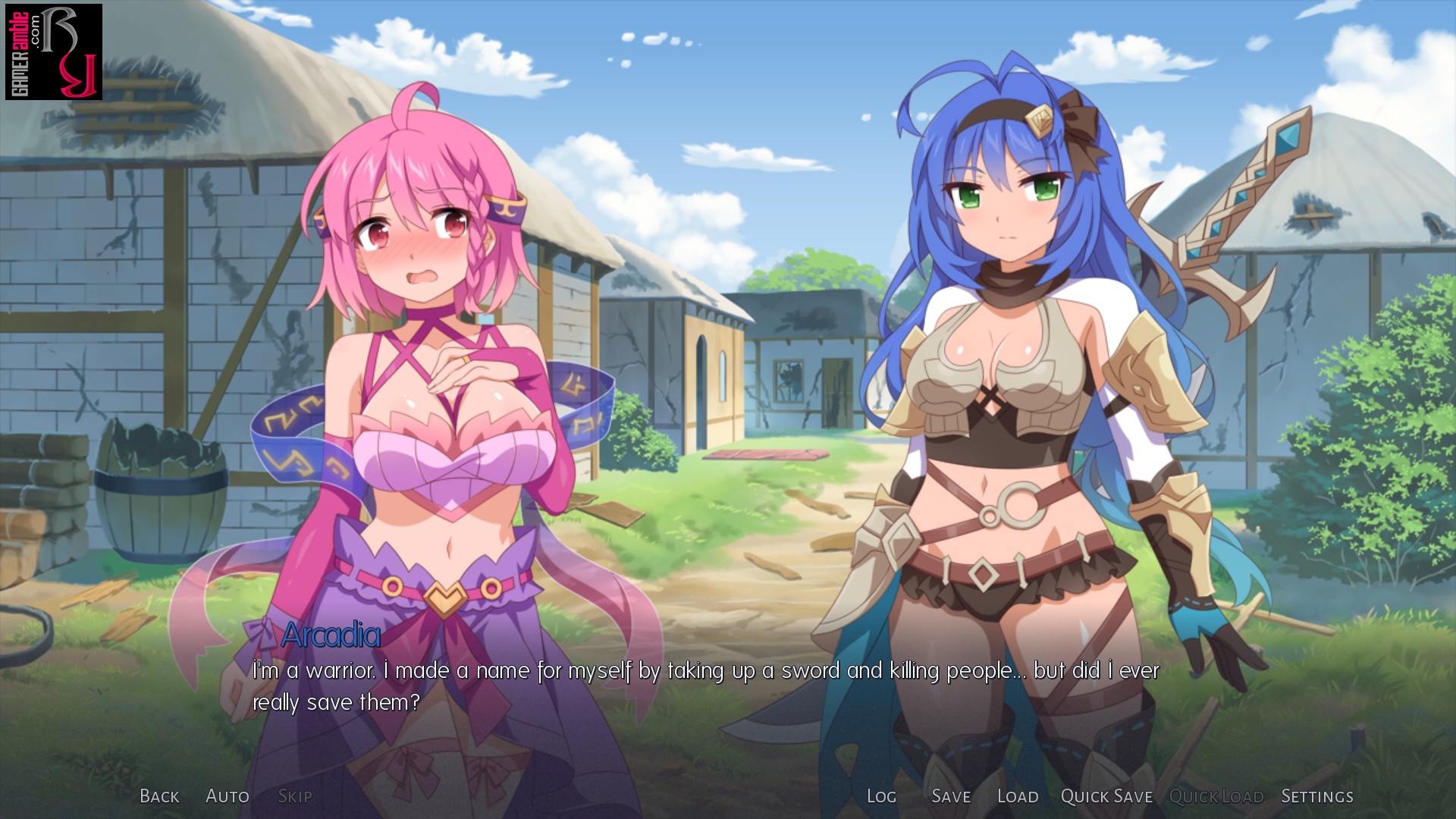Legends of Talia: Arcadia
Developer: Winged Cloud | Publisher: Winged Cloud | Release Date: 2017 | Genre: Simulation/ Visual Novel | Website: N/A | Purchase: Steam
Being a hero who is beloved by the people is not without its drawbacks, which is something the Arcadia, the protagonist of Legend of Talia: Arcadia, discovers in this short kinetic novel. Talia is a legendary knight who has been involved in numerous battles since she was barely a teen. Some modifications to her body have made it easier for her to heal from physical wounds, but a life spent witnessing so much bloodshed has left her somewhat bitter and jaded. Arcadia also bears the burden of not always being able to save everyone, which is what happened when she visited the village of Freycross. After receiving the usual heroes welcome by the villages, Arcadia slipped away in the dead of the night to avoid having to deal with more fawning fans in the morning. Unfortunately, a deadly horned dragon shows up and decimates the village, and Arcadia is unable to make it back in time to stop it.
Legend of Talia: Arcadia picks up ten years after the dragon incident, with Arcadia traveling through a forest on her way back to her hometown. When she hears the cries of a young woman in distress, Arcadia rushes over to help her and ends up saving the girl from a monster. The grateful girl then invites Arcadia to her home, which is a small, easily overlooked village in Littleoak Fores. Arcadia reluctantly agrees, but instead of a hero’s welcome, she finds the past catching up with her when she arrives in the village.
Winged Cloud is best known for its fan-service-heavy “Sakura” series of visual novels, which makes Legend of Talia: Arcadia a bit of an anomaly. While the game still contains more than its fair share of fan service elements, there’s no adult patch as with previous Winged Cloud titles. In addition to being a lot more toned down, the game is also a lot darker than anything in the “Sakura” series. The story is told from Arcadia’s point of view, and she frequently reminisces about the past. Having to fight as a warrior from a very young age has left her weary, and it is clear that she has had a tougher life than her fans might imagine. The game is very short, though, and to reveal anything more about the story would involve major spoilers. Suffice it to say that Arcadia has to deal with the darker side of being seen as a hero and receives a second chance at righting the wrongs of her past.
The visual novels by Winged Cloud are known for their beautiful artwork, and LoT: Arcadia is no exception. Unfortunately, in this game, the artwork is somewhat detrimental as the cute character designs and bright colors are at odds with the much darker story. While detailed, there’s not a lot of variety when it comes to the art either, and the game only features a handful of backgrounds and sprites. There are a few CGs as well, which feature the two girls in the game in various dynamic poses. A gallery viewer is available to view these, but it just highlights how few CGs there are and how many times the same poses are reused with different backgrounds.
The game does not feature any animations either, with only the facial expressions of characters changing to indicate their emotions. In an attempt to make things look a little less static, the onscreen position of character sprites move during conversations, but fast readers are more likely to find this distracting than dynamic.
LoT: Arcadia is a very short title and can be completed in less than an hour depending on your reading speed. Since it is a kinetic novel there are no choices to be made or alternate routes through the game. Winged Cloud has also opted not to feature any voice acting in the game, which is a pity. The game lacks any kind of meaningful sound effects too, but the background music is at least very fitting. As it is made with Ren’Py, the game features the usual options such as being able to set the speed of text. Players can also save the game at any time, but considering how short it is most will complete it in one session.
Overall, Legends of Talia: Arcadia is an interesting kinetic novel, which stands out for how different it is compared to other Winged Cloud releases. Unfortunately, due to how short the story is there’s not a lot of room for character growth or meaningful interactions. Thankfully, players can experience the story without shelling out too much as the game is priced a lot more affordable than the “Sakura” series titles. Those expecting a typical Winged Cloud game featuring a fluffy storyline and tons of fan service will be disappointed in Legends of Talia: Arcadia while those expecting something more serious might be put off by the visuals. This is a pity as the story had a lot of potential and the premise of a famous heroine struggling with her place in the world could have benefited from a more in-depth story.
System Requirements
- Minimum PC System Requirements
- Minimum Mac OS X System Requirements
- Minimum SteamOS + Linux System Requirements
- OS: Windows XP+
- Processor: 1.2 GHz Pentium 4
- Memory: 1 MB RAM
- Graphics: 1280 x 720
- Storage: 300 MB available space
- OS: OS X 10.6
- Processor: Any 64 bit processor
- Memory: 1 MB RAM
- Graphics: 1280 x 720
- Storage: 300 MB available space
- OS: Ubuntu 12.04 or higher; SteamOS
- Processor: 1.2 GHz Pentium 4
- Memory: 1 MB RAM
- Graphics: OpenGL compatible card
- Storage: 300 MB available space


